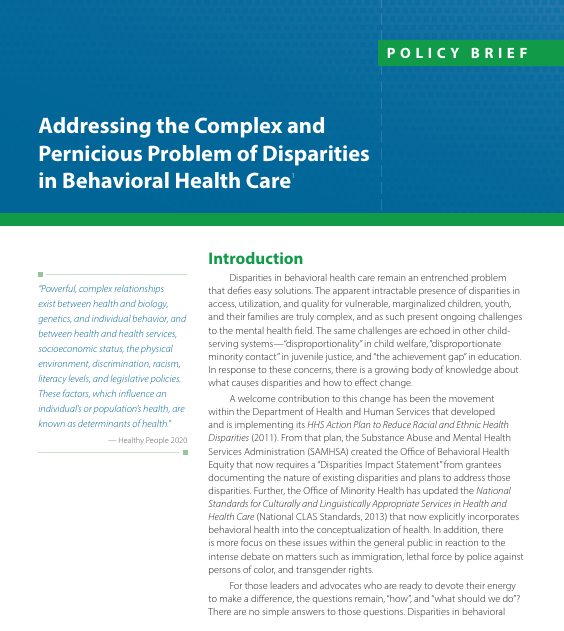Addressing the Complex and Pernicious Problem of Disparities in Behavioral Health Care

This policy brief examines the persistent and complex problem of behavioral health care disparities affecting marginalized populations, particularly children, youth, and families. The resource provides a comprehensive framework for understanding and addressing these disparities through data analysis, examining four major contributing factors: systemic and institutional oppression, social determinants of mental health, interpersonal biases, and cultural group beliefs and practices. It also introduces Jackson’s “Five A’s + 1” Matrix (Availability, Awareness, Accessibility, Affordability, Appropriateness, and Acceptability) as a tool for analyzing service system disparities and offers concrete strategies for organizations and systems to promote cultural and linguistic competence, engage in anti-racism work, and create meaningful partnerships with marginalized communities to achieve health equity in behavioral health services.
- Tagged
- Policy Briefs